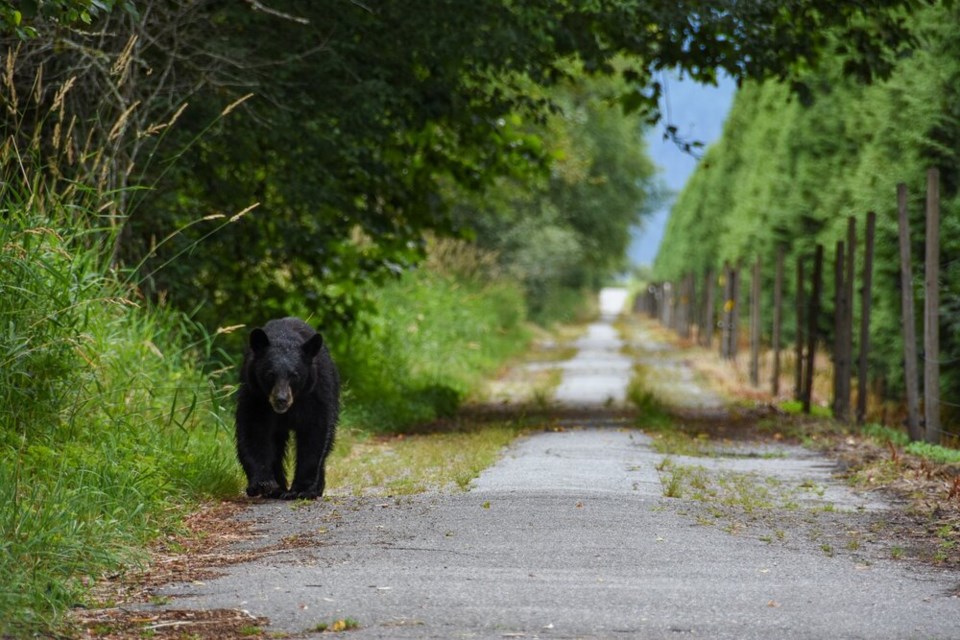Every year the BC Conservation Officer Service (BCCOS) kills hundreds of bears across British Columbia in a bid to protect public safety.
And every year, wildlife advocates say the system fails to protect animals' lives adequately.
"We need to get to the bottom of why there are so many dead bears, year after year after year," said Lesley Fox, executive director of The Fur-Bearers.
On Monday, her organization published a database detailing bear killings in every community across the province from 2015 to 2021.
The numbers, drawn from documents obtained in a freedom of information request to the B.C. Ministry of Environment and Climate Change Strategy indicate 3,779 black bears have been killed in the past seven years ending in 2021. That's an average of about 540 black bears a year.
On a smaller scale, between seven and 40 Grizzly bears have been killed every year across British Columbia since 2015, according to the document accessed through Freedom of Information laws.
B.C.'s top five deadliest communities for bears in 2021
Some B.C. communities accounted for a disproportionate share of ursine killed in the name of public safety.
BCCOS officers in Prince George killed 36 bears in 2021, a scale of euthanization higher than any other community in B.C.
"Prince George has attractant bylaws in place, bylaws against feeding wildlife. These are really important steps but are they enough?" said The Fur-Bearers director of advocacy and policy Aaron Hofman.
"Something is wrong there."
The communities of 100 Mile House, Quesnel, Burns Lake and Vernon followed, with officers putting down between 22 and 16 bears.
When asked about the newly released data, a spokesperson for the BCCOS said the most effective approach to minimizing human-wildlife conflict is education and prevention.
"In the 10 communities which have been certified as 'Bear Smart' – reports of bear conflicts have decreased by almost 20 percent," wrote the spokesperson in an email.
Much of that comes down to reducing attractants in communities, such as garbage and fruit trees.
"All of the preventative actions taken by the service are focused on keeping bears wild and ensuring attractants are properly secured," added the spokesperson from the Ministry of Environment and Climate Change Strategy, which oversees the service.
"The sad reality is that when people fail to take those precautions, bears are put down to keep people safe."
Seven-year trend shows concentration of bear killings
The 2021 community data largely reflects the broader seven-year trend showing black bears are more likely to be killed in some B.C. communities than others.
Between 2015 and 2021, Prince George recorded 231 bear deaths at the hands of conservation officers, more than double the number of government-sanctioned black bear killings in Terrace, the next closest community,
Burns Lake and Quesnel again made the top 10 list, along with Kamloops, Powell River, Coquitlam, Smithers and Nelson. With 59 deaths over seven years, Kelowna and Squamish tied Campbell River for B.C.'s tenth deadliest community for black bears.
Hofman said every community where bear killings are trending upward or are consistently high should be concerned, whether it's a local ecosystem out of balance, a huge gap in educating the public, or enforcing local and provincial laws. He also said the BCCOS must be held accountable for how and when it chooses to kill a bear.
"Ultimately, it's a human problem. The bears will come to the communities, areas where there's food. Food waste, garbage, companies not doing due diligence," said Hofman. "Whether it's Prince George or Coquitlam, we've encroached on these wild animals' habitat. But we can coexist with them."
"We do believe that having zero killings is a goal that's achievable."



